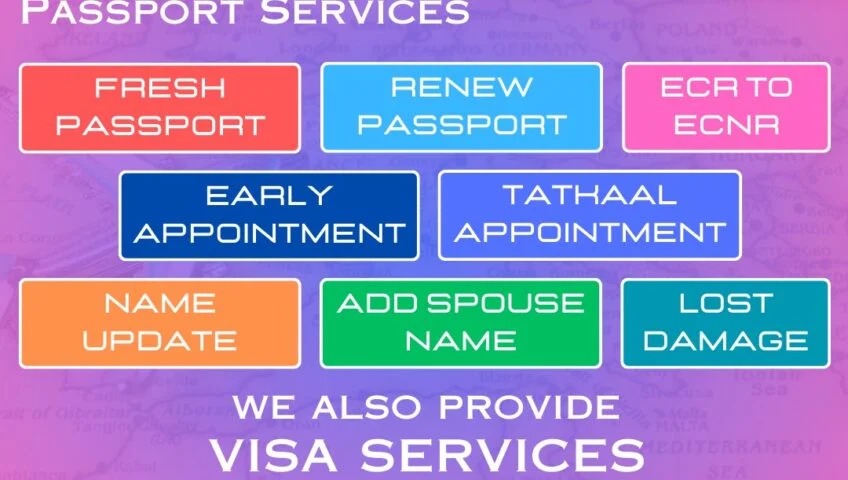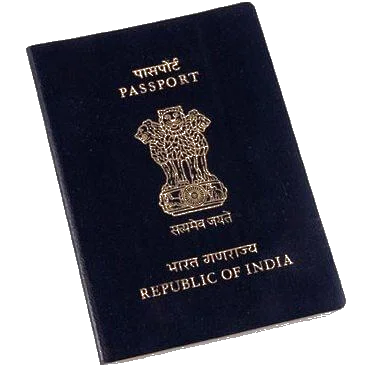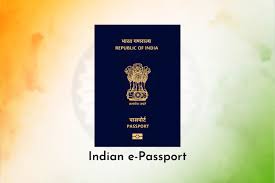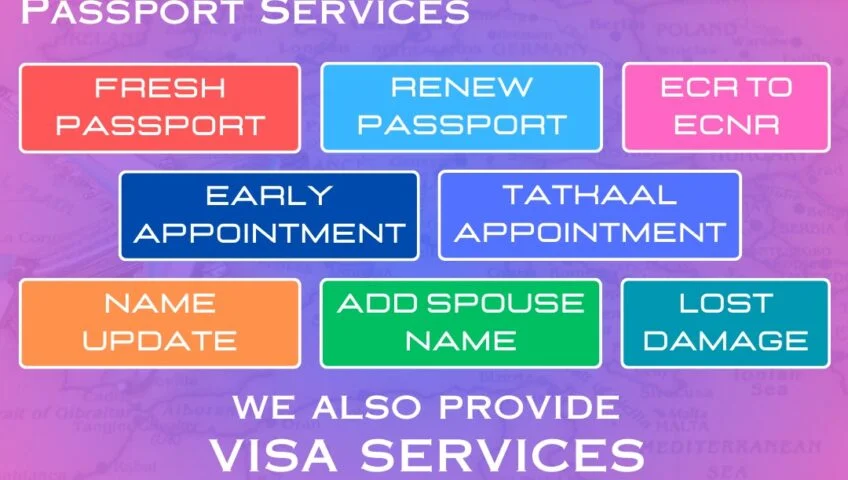What Happens If I Lose My Passport? 9968875644 A passport is one of the most important travel and identity documents you can own. It not only allows you to travel internationally but also serves as proof of your nationality and identity in many situations. Losing a passport can therefore feel overwhelming, especially if it happens while you’re traveling abroad. The good news is that there are clear steps you can take to safeguard yourself, minimize complications, and get a replacement passport.

In this article, we will walk you through what happens if you lose your passport, what to do immediately, how to apply for a replacement, potential consequences, and preventive measures to avoid such situations.
What Happens If I Lose My Passport? 9968875644
Immediate Consequences of Losing a Passport
Losing your passport can have several consequences depending on your location and circumstances:
- If you lose it in your home country (e.g., India, USA, UK, etc.):
- You will not be able to travel internationally until a new passport is issued.
- Your lost passport will be reported and blacklisted, making it invalid even if found later.
- If you lose it abroad: What Happens If I Lose My Passport? 9968875644
- You may face challenges proving your identity.
- You cannot leave the foreign country without valid travel documents.
- You will need to visit your country’s embassy or consulate to obtain an emergency travel document or a fresh passport.

Steps to Take If You Lose Your Passport
1. Stay Calm and Act Quickly : What Happens If I Lose My Passport? 9968875644
The first and most important step is to remain calm. Panic can make things worse. Collect yourself and start the process of reporting and replacing your passport immediately.
2. Report the Loss: What Happens If I Lose My Passport? 9968875644
- In your home country: File a First Information Report (FIR) at the nearest police station. This serves as legal proof that your passport is lost.
- Abroad: Report the loss to the local police of the country you are in. Get a copy of the police report—it will be required at the embassy/consulate.
pa3. Inform Your Embassy or Passport Office : What Happens If I Lose My Passport? 9968875644
- If abroad, locate your country’s embassy or consulate. They will guide you through the process of obtaining an Emergency Certificate (EC) or a new passport.
- If in your home country, visit the nearest Passport Seva Kendra (PSK) / Passport Office (in India) or the passport authority in your country with your FIR copy.

4. Apply for a Duplicate Passport : What Happens If I Lose My Passport? 9968875644
- In most countries, you need to apply for a re-issue of passport under the category of “Lost Passport.”
- Submit the necessary documents: What Happens If I Lose My Passport? 9968875644
- Police report/FIR
- Application form
- Proof of address and identity
- Passport-sized photographs
- Self-declaration of the loss
5. Emergency Travel (if abroad)
- If you need to travel immediately, most embassies issue an Emergency Certificate (EC).
- This allows you to return to your home country but does not permit onward international travel.
What Happens Legally? : What Happens If I Lose My Passport? 9968875644
Once you report your passport lost:
- The lost passport number will be deactivated and added to the “lost/stolen passport database.”
- Even if your lost passport is later found, it cannot be used for travel.
- If your passport is misused (e.g., for identity theft), you will not be held liable if you have already reported it as lost.
Timeline for Replacement
The time it takes to get a replacement depends on where the loss occurred:
- In your home country: Generally takes 7–21 working days under the normal process, faster if you apply under Tatkaal (urgent) scheme.
- Abroad: You may get an emergency travel document within a few days, while a full replacement passport may take 2–6 weeks depending on the country and workload.
Costs Involved
The cost of replacing a lost passport is usually higher than applying for a fresh one. For example, in India:
- Normal re-issue of passport: ₹1,500 to ₹3,500 (depending on pages and validity).
- Tatkaal (urgent): ₹3,500 to ₹5,500.
- Abroad, the cost may vary between $75–$200 depending on the embassy.
Preventive Measures to Avoid Passport Loss
While accidents happen, here are some practical tips to safeguard your passport:
- Keep digital copies: Store scanned copies of your passport on a secure cloud drive or email.
- Carry photocopies: Always carry a photocopy of the passport’s front and back pages.
- Use a passport holder or money belt: Keep it close to your body when traveling.
- Don’t carry it unnecessarily: Use other ID cards (like Aadhaar, driver’s license, or national ID) for local purposes when abroad.
- Register your passport: Many countries offer registration services that make it easier to track and report a loss.
FAQ on Losing a Passport
Q1: Can I travel if I lost my passport but still have a photocopy?
No. A photocopy is not a valid travel document. You must get an emergency travel certificate or a replacement passport.
Q2: What if I find my passport after reporting it lost?
It becomes invalid once reported. You must use only the new passport.
Q3: Can I apply under the Tatkaal scheme for a lost passport in India?
No. Lost passports cannot be applied under Tatkaal. You must go through the normal replacement process.
Q4: How long does it take to get an emergency certificate abroad?
Usually 1–3 working days, depending on the embassy and circumstances.
Q5: Will I face problems in the future for losing a passport?
Not usually, but repeated losses may raise suspicion and cause stricter verification.
Don’t Panic! What Happens If You Lose Your Passport?
Losing your passport, whether at home or, worse, abroad, can instantly turn your stomach into knots. Your passport is more than just a document—it’s your key to international travel and a critical form of identity. But take a deep breath; this situation is manageable. The most important thing is to act swiftly and methodically.
Here is a breakdown of what happens when you lose your passport and the essential steps you need to take for replacement.
The Immediate Consequence: Invalidation and Identity Theft Risk
The moment you realize your passport is gone, two primary things happen:
- Immediate Invalidation: The first, and most crucial, step you must take is to report the loss or theft to the relevant government authority (e.g., the U.S. Department of State, or your country’s equivalent). Once reported, your passport is flagged as lost or stolen and becomes immediately invalid for travel, even if you find it later. This is a vital measure to protect you from international identity theft.
- Increased Vulnerability to Identity Theft: A lost or stolen passport can be used by criminals to create fake identities, open accounts, or commit crimes. Reporting the loss quickly limits the window of opportunity for misuse.
Step-by-Step Action Plan
The exact process varies depending on whether you are at home or overseas, but the core steps remain the same.
If You Are Abroad
Losing your passport while traveling is the more stressful scenario, as it impacts your ability to leave the country.
- Report to Local Police (Especially if Stolen): While often not mandatory for the government replacement process, filing a police report is highly recommended, especially if the passport was stolen. This official record can be helpful for your replacement application and any potential travel insurance claims.
- Contact Your Country’s Embassy or Consulate: This is your lifeline. Contact the nearest embassy or consulate of your home country immediately. They are equipped to help citizens in distress.
- Apply for an Emergency/Temporary Passport: You will need to apply in person for a replacement. If you have urgent travel plans (like a flight home), the consulate can often issue a limited-validity emergency passport designed to get you back to your home country.
- Documents Needed (Try to have copies ready!): You will typically need a completed application form (e.g., DS-11 and DS-64 for U.S. citizens), a police report (if available), proof of citizenship (birth certificate or a photocopy of your lost passport), alternate photo ID (driver’s license), and passport photos.
If You Are At Home
If your passport is lost or stolen while you are in your home country, the process is less rushed but equally important.
- Report the Loss/Theft: Report the loss online, by phone, or by mail to your national passport authority. This cancels the old passport.
- Apply for a New Passport: You must treat this as a brand-new passport application, meaning you generally must apply in person and cannot use the simpler renewal-by-mail process.
- Gather Required Documents: Prepare the necessary forms, proof of citizenship, a valid photo ID, new passport photos, and payment for the new passport fee.
- Expedite If Necessary: If you have immediate travel plans, you can pay an additional fee to expedite the processing time.
The Financial and Logistical Impact
- Fees: Replacing a lost or stolen passport almost always requires paying the full application fee, just as if you were applying for a new one, as you cannot use the lower-cost renewal process.
- Travel Delays: If you are abroad, you will likely be unable to continue your international itinerary or fly home until your replacement passport is issued. This may mean extra costs for lodging, food, and flight changes. Travel insurance that covers emergency assistance and trip interruption can be invaluable in this situation.
Prevention is Key
While you can recover from a lost passport, prevention is always better:
- Keep a Digital Copy: Store a secure, encrypted copy of your passport’s photo page, visa pages, and any other important IDs in a cloud service or secure folder.
- Keep a Paper Copy: Leave one photocopy with a trusted person at home and keep a separate physical copy apart from your actual passport while traveling.
- Be Vigilant: Use hotel safes, never leave your passport unattended in public, and carry it securely on your person when in transit.
Losing your passport is a major inconvenience, but by knowing the steps—Report, Apply In-Person, and Gather Documents—you can navigate the situation and get back on your journey
Disclaimer
The information in this article is for general guidance. Procedures, fees, and timelines may vary by country and individual circumstances. Always check the latest requirements with your country’s official passport authority or embassy before applying.
Conclusion
Losing a passport is inconvenient, but it is not the end of the world. Governments and embassies are well-prepared to assist travelers in such situations. The key is to act quickly—report the loss, secure an emergency document if abroad, and apply for a replacement. By keeping photocopies, digital backups, and practicing safe travel habits, you can minimize the risks associated with passport loss.

